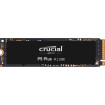Is this the current sweet spot for price-performance at the moment?
My [email protected] is getting on a bit and feel after 10 years, it's time to bite the bullet.
Did a little research and the 11400F power limits can be turned off, so I want to pair it what an Asus TUF B560M Wifi motherboard. I've read this motherboard has decent VRM.
I'm also thinking of the Corsair Vengeance LPX C16 3200MHz RAM (2x8GB) which I think runs at 3200MHz default in the BIOS.
I'll pretty much be using all the other parts from my current PC, Corsair 520W Modular PSU, NZXT M22 AIO and SSDs.
Just not sure if I need an NVME drive for Windows and if there is a big real-time difference with my Crucial MX500 SSD SATA?
I've got a GTX1050 but it's all I need at the moment as I don't game and GPU prices are mental.
My [email protected] is getting on a bit and feel after 10 years, it's time to bite the bullet.
Did a little research and the 11400F power limits can be turned off, so I want to pair it what an Asus TUF B560M Wifi motherboard. I've read this motherboard has decent VRM.
I'm also thinking of the Corsair Vengeance LPX C16 3200MHz RAM (2x8GB) which I think runs at 3200MHz default in the BIOS.
I'll pretty much be using all the other parts from my current PC, Corsair 520W Modular PSU, NZXT M22 AIO and SSDs.
Just not sure if I need an NVME drive for Windows and if there is a big real-time difference with my Crucial MX500 SSD SATA?
I've got a GTX1050 but it's all I need at the moment as I don't game and GPU prices are mental.





